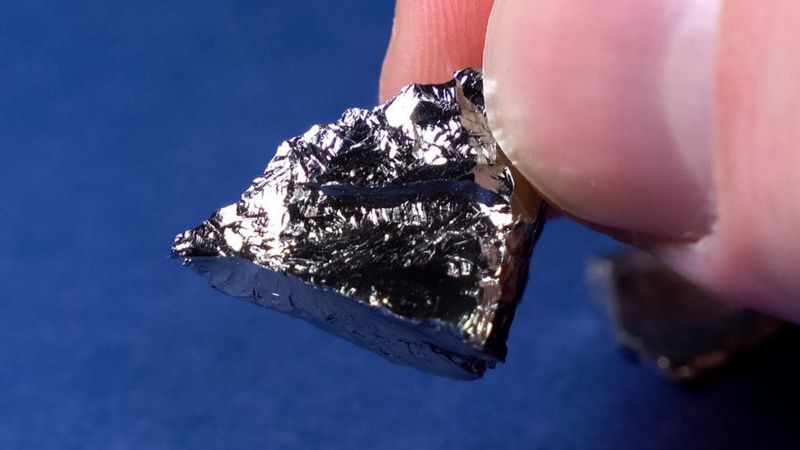
Beijing is moving to implement restrictions on exports of two key semiconductor components gallium and germanium, amid heightened tensions and tensions with the United States over microchips.
The new policy from the Beijing administration would require a special license to export gallium and germanium anywhere from the world’s second-largest economy.
These two elements are used in the production of military equipment including electronics and computer chips.
The United States has also announced steps to prevent China from advancing too far in the microprocessor technology industry. As part of that, Washington has imposed restrictions on semiconductor exports to China.
China is the largest producer of gallium and germanium used worldwide.
Critical Raw Materials Alliance CRMA estimates that 80% of gallium and 60% of germanium used worldwide come from China.
Gallium and Germanium are called “minor metals”, meaning they are not found in nature. They are usually formed as a by-product of other processes.
Along with the US, Japan, and the Netherlands have also imposed restrictions on the export of chip technology to China. Note that ASML, one of the world’s leading semiconductor manufacturing companies, is based in the Netherlands.
Because several other countries, including the Netherlands, have previously imposed restrictions on chip exports to China,” Colin Hamilton of investment firm BMO Capital Markets told the BBC.
The constant back-and-forth between the world’s two largest economies has raised concerns about a growing trend of “resource nationalization”.
In this trend, the government of one country reserves for itself the necessary and important material to influence another country.
Gallium arsenide is a compound made of gallium and arsenic. It is used in the manufacture of high-frequency computer chips. This substance is also used in the production of light-emitting diodes or LED lights and solar panels.
A limited number of companies around the world produce pure gallium arsenide that can be used in electronics.
Germanium is also used to make microprocessors and solar cells. Mr. It’s also used in vision goggles, which are “very important for the military,” says Hamilton.
High-quality semiconductors are very important. But this is difficult to confirm as China dominates the sector. So recycling may have to be considered.”
Last month, a Pentagon spokesman said the U.S. has stockpiles of germanium, but not that much gallium.
The spokesman added that the Defense Department is “taking necessary steps in this regard… to ensure the supply of critical materials required for microelectronics, including gallium and germanium.”
Even then, China’s export restrictions are expected to have limited long-term effects.
Eurasia Group, a research firm that works on political risk, says that while China is the leading exporter of gallium and germanium, there are alternative sources for producing the materials needed to make computer chips.
They say that there are some facilities outside China for this.
A decade ago, when China imposed restrictions on the export of some rare minerals, the Eurasia Group made similar statements.
By Eurasia’s account, more exporting countries have already emerged, and China’s dominance of the supply of scarce minerals has fallen from 98% to 63% in less than a decade.
In October last year, Washington announced that companies that export chips to China (wherever they are made in the world) using different US software or materials will have to obtain a license.
In October last year, Washington announced that companies that export chips to China (wherever they are made in the world) using different US software or materials will have to obtain a license.
China has recently imposed restrictions on companies such as Lockheed Martin, an aerospace company linked to the US military.
Apart from this, the governments of various Western countries have also emphasized reducing their dependence on China for these minerals and manufactured goods.
However, it will take several more years to find alternative sources of these minerals and to prepare elements such as gallium and germanium for use.
In the long term, mineral-rich countries such as Australia and Canada can use these materials crises as an opportunity.
Experts warn that using these resources and technological capabilities as weapons – which China and the United States have already done – will have a negative impact on the environment around the world.
Because all new technologies that do not harm the environment are dependent on these materials.
The export control restrictions aren’t immediately likely to wreak havoc on the industry or at the consumer level, but experts say it’s important to keep an eye on where the trend is headed.